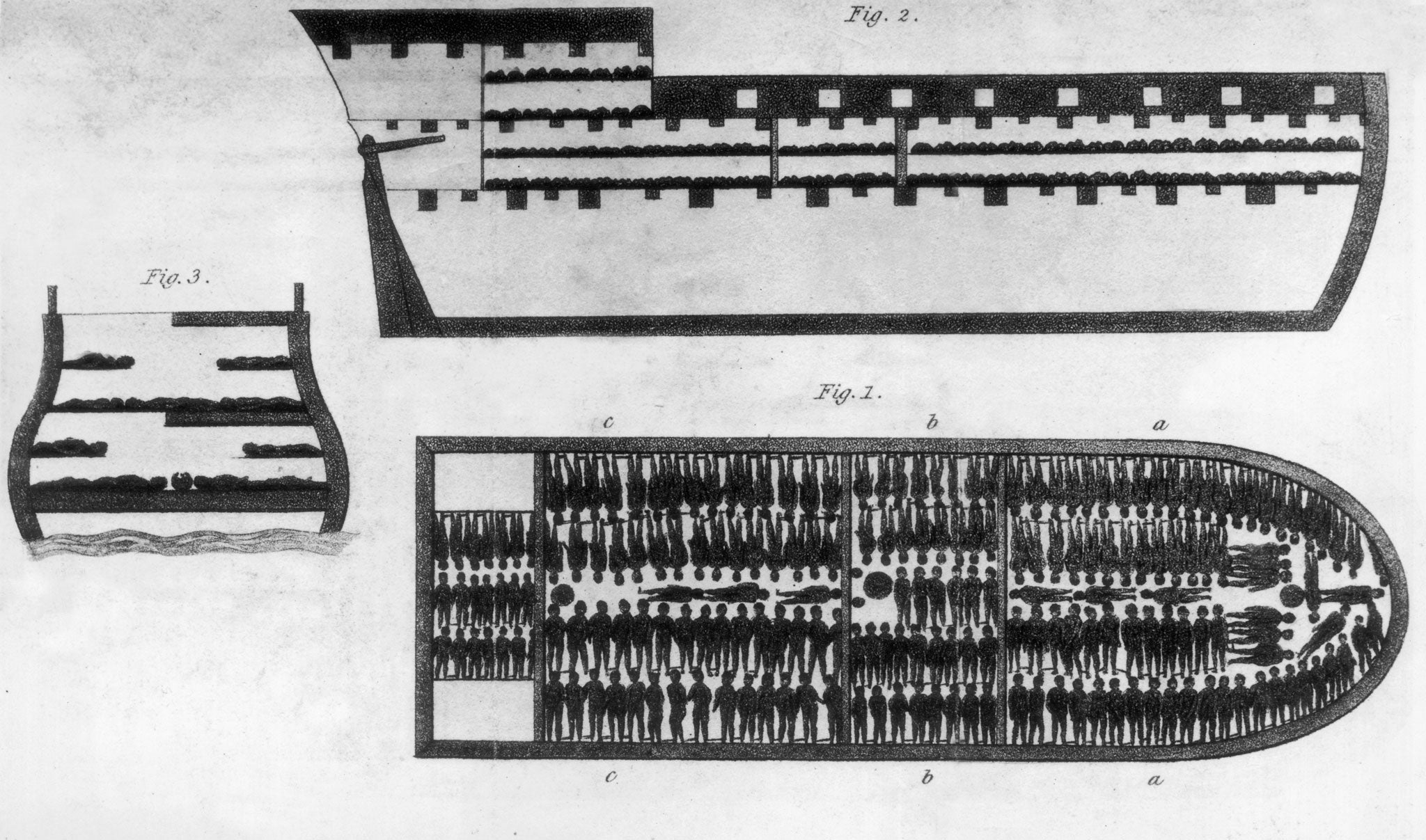As Caribbean nations call for compensation, it's time for Britain to examine its own history in the slave trade
Maybe if there had been sugar or cotton plantations in Surrey, Yorkshire or in Devon the reality of enslavement would be received differently today

Your support helps us to tell the story
From reproductive rights to climate change to Big Tech, The Independent is on the ground when the story is developing. Whether it's investigating the financials of Elon Musk's pro-Trump PAC or producing our latest documentary, 'The A Word', which shines a light on the American women fighting for reproductive rights, we know how important it is to parse out the facts from the messaging.
At such a critical moment in US history, we need reporters on the ground. Your donation allows us to keep sending journalists to speak to both sides of the story.
The Independent is trusted by Americans across the entire political spectrum. And unlike many other quality news outlets, we choose not to lock Americans out of our reporting and analysis with paywalls. We believe quality journalism should be available to everyone, paid for by those who can afford it.
Your support makes all the difference.The success of Steve McQueen’s film 12 Years A Slave at the Oscars provides a new opportunity to explore the legacy of enslavement. In his acceptance speech, McQueen stated "I dedicate this award to all the people who have endured slavery and the 21 million people who still suffer slavery today." Although it may feel coded, the expression ‘endured slavery’ is of major significance when exploring the emotional legacy of the enslaved past; this is because this past still has an impact in terms of behaviour, cultural norms, parenting, relationships, lifestyle choices and in how identity is projected and received, not only for people of African descent, but also for people from Europe and North America.
Since there has been no Royal Commission or any form of restorative justice which recognises this painful history, the concept of slavery has become further racialised as it has come to be associated with anyone of African heritage.
This fuels stereotypes and racism. We have a national amnesia about the system of slavery; for example, White British involvement in slavery has been overlooked and the focus has turned to narratives in which Africans on the continent were the most important players in this inhuman trade.
Such narratives remove any guilt for anyone in Britain who was connected with the trade. The family history of black and white people is intertwined with our shared and collective past of the history of slavery and colonisation.
Maybe if there had been sugar or cotton plantations in Surrey, Yorkshire or in Devon - as opposed to the Caribbean or North America - the reality of enslavement would be received differently today.
The late Bernie Grant MP for Tottenham recognised this legacy, hence his life-long campaign in demanding reparation for people of African descent as a result of the trans-Atlantic slave trade. Since his Early Day Motion in 1993, in which he called for an apology over Britain’s role in the slave trade, a number of key factors have started to shift 150 years of defensiveness from the establishment.
The Legacies of British Slave–Ownership project, run by University College London has highlighted key beneficiaries such as the family of David Cameron. By opening this Pandora’s Box, the skeletons of the past may come to haunt modern Britons – and encourage some to shirk the uncomfortable truth.
The film 12 Years A Slave provides a real opportunity to have our own truth and reconciliation process. One is perhaps already underway in the Caribbean.
The Caribbean Community (CARICOM), which represents 15 Caribbean countries, is taking legal action against UK, France, Spain, Portugal, the Netherlands, Norway, Sweden and Denmark for reparation for the enduring suffering caused by the Atlantic slave trade.
A ten point action which will form the basis of the international lawsuit has been drawn up by Professor Sir Hilary Beckles, an academic and historian whose great-great-grandparents were slaves on the Barbados plantation owned by ancestors of the actor Benedict Cumberbatch.
There is precedent here: Martyn Day Solicitors who were successful in their legal action against the Government on behalf of the 5,000 Mau Mau who were interned and tortured in Kenya in the 1950s.
The action from CARICOM includes a request for a formal apology and resources to cover issues around health, education and economic development to the Caribbean nations. Although such action should be commended it fails to recognise the diaspora experience in the UK and the rest of Europe.
We need a Royal Commission similar to be the recent one that was established in February this year by David Cameron looking at the impact of the Holocaust. The Commission would report to Parliament and look at legacy of enslavement in society today across a number of policy areas.
The trauma of enslavement is still ever present within the subconscious of both black and white people 400 years later. It is reinforced by everyday racism and the consequences of government policy and globalisation. We need to reclaim our family history. This will involve more soul-searching and unpacking our family and national narratives to achieve equality for all by recognising the lasting legacies of those who 'endured slavery'.
Join our commenting forum
Join thought-provoking conversations, follow other Independent readers and see their replies
Comments